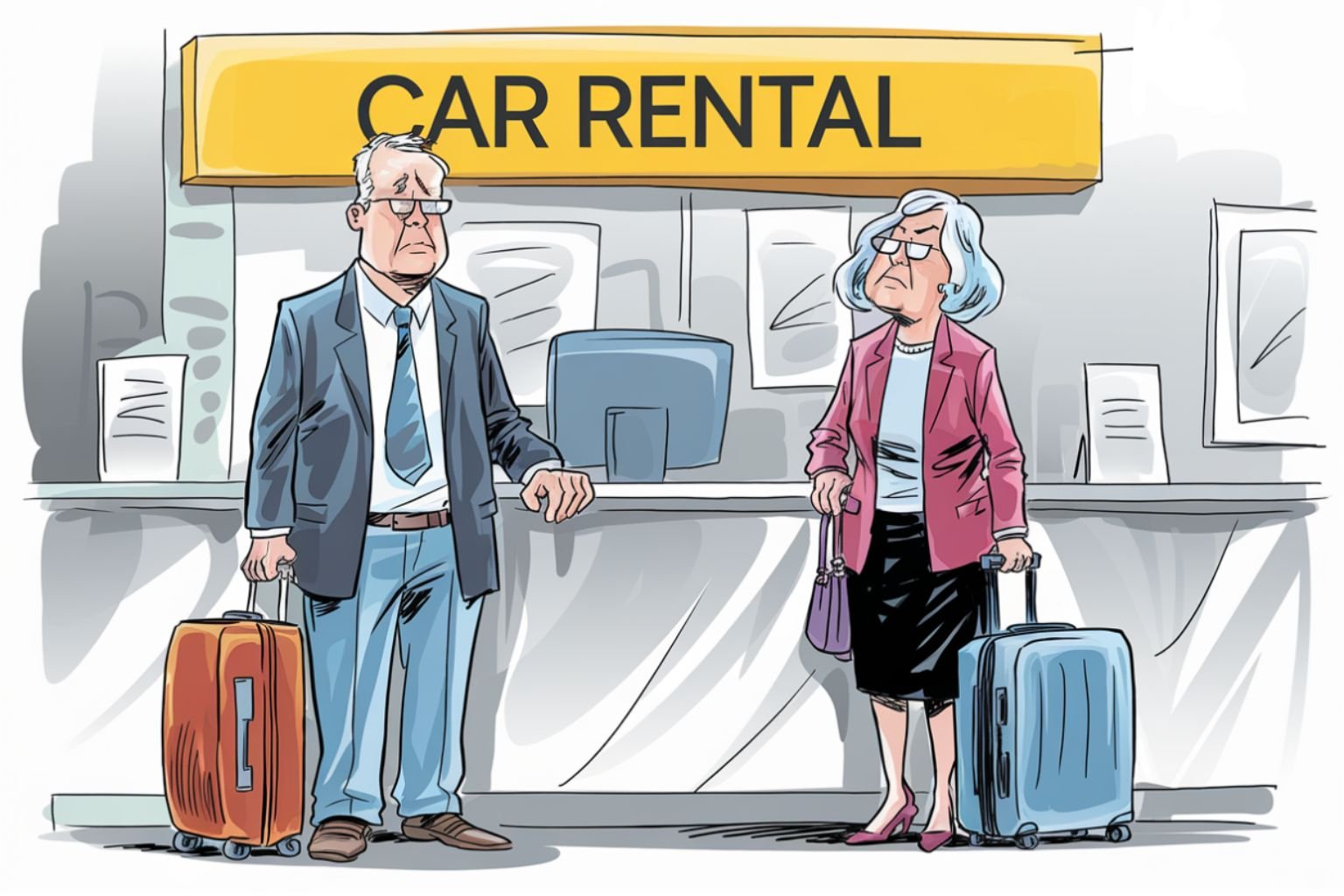Ling Lu Yamaki wanted to get out of her timeshare with Hilton Grand Vacations after she discovered a serious problem with it.
Yamaki asked the company to cancel the $28,000 contract she and her husband had agreed to pay for their timeshare after attending a presentation in Las Vegas, but it said no.
Getting a refund for a timeshare isn’t easy, especially when you make some common timeshare purchasing mistakes. In Yamaki’s case, that included missteps in buying the timeshare, in negotiating for a timeshare exit, and in dealing with the advocate who was trying to help her.
Yamaki’s case will probably surprise you — and there’s a twist at the end that I’m still trying to process. (You’ll definitely want to take the poll after you read it.) It’s also a teachable moment for anyone considering a timeshare purchase or trying to exit a timeshare.
I’ll explain:
- Your consumer rights in a timeshare agreement.
- What to do when you have a contract dispute with a timeshare company.
- How to get a refund for your timeshare.
Disclosure: I’m not a big fan of timeshares, as I make clear in my complete guide to buying and selling a timeshare. But if you’re going to buy one, you need to protect yourself with some basic information.
And you need to be careful — very careful.

How to make a $28,000 mistake with Hilton Grand Vacations
Yamaki’s story started, as so many timeshare stories do, with a slick timeshare presentation. She and her husband booked a Hilton vacation package in July that required them to attend the one-hour presentation in Las Vegas.
In the meeting, she says a saleswoman named Maria explained the benefits of owning a Hilton Grand Vacations timeshare. One of the perks was being able to book a week at any Hilton resort for between $50 and $245 during “open season.” (Hilton’s Open Season Program, available only to owners, lets you book any Hilton Grand Vacations Resort using cash instead of points.)
And Maria was persuasive.
“We felt this was a great benefit,” Yamaki says.
Just one problem: The sales sheet showed Yamaki rates of between $50 to $245, but it did not say if it was per night or per week, she says. That was an important detail, so Yamaki asked Maria to clarify. And she says Maria assured her that, yes, the rate was per week.
“So we decided to buy the timeshare,” says Yamaki.
Before she signed the contract, Yamaki saw a different price per week. The Open Season rate was between $74 and $2,514 — per night.
“We stopped signing and questioned Maria that the rate listed here was per night, not per week, and whether her $50 to $245 per week rate was true,” she says.
Maria reassured the nervous couple that the $50 and $245 per week was accurate. They signed the document.
Nothing could have prepared them for what happened next.

A startling discovery about their new Hilton Grand Vacations timeshare
Yamaki says It took a few weeks to activate her Hilton Grand Vacations account. But the moment she received her welcome email, she was ready to take advantage of Hilton’s super-cheap Open Season rooms.
“I texted Maria and asked her to show us how to book,” she says. “Maria texted me back, saying she was in South America on vacation and could not help us from there until after September 1.”
That was almost a month later, and Yamaki wanted to book sooner.
“We logged into the account ourselves and tried Open Season booking,” she says. “There was no such Open Season booking rate available at all.”
Then she made another discovery: She and her husband thought they had purchased a one-week timeshare at the Grand Islander in Waikiki. But their account said they had paid $28,000 for just four nights at the property, she says.
“I texted Maria and informed her of our findings and questioned her why she would trick us into signing the deal,” says Yamaki. “We never heard from her again.”
Yamaki asked Hilton Grand Vacations to cancel her contract. She even agreed to cover the $5,000 transfer fee and escrow fee — but she wanted out.
Hilton Grand Vacations refused, saying she was past her rescission period. (A rescission period allows customers a certain amount of time to change their mind on a purchase without penalty.)
Yamaki probably felt as if she had no rights, and that would have been half true.

Here are your consumer rights in a timeshare purchase
Your rights in a timeshare purchase are limited. Here’s an overview of the relevant rules.
You have a right to cancel
State law usually provides a cooling-off period, allowing you to cancel a timeshare purchase without penalty. This period typically ranges from 5 to 10 days, during which you can receive a full refund.
You have the right to full disclosure
Regulations state that a seller has to provide complete and accurate information about the timeshare. That includes the amenities, costs, and the full price. If the seller gives you incomplete information, you have grounds for a legal complaint.
You have the right to protection from resale schemes
The Federal Trade Commission prohibits deceptive practices in timeshare resale services. Specifically, regulations protect you from fraudulent resale schemes and misrepresentations related to the potential resale value of your timeshare.
You have the right to a fair debt collection
Can’t pay your timeshare maintenance fees? You’re protected from aggressive or unfair debt collection practices under the Fair Debt Collection Practices Act.
But wait! There’s more! (Sorry to sound like a timeshare salesman, but it only seemed appropriate.)
Your timeshare rights under state law
Most timeshare purchases are regulated by states, and they contain some rights worth noting. In Nevada, where Yamaki signed her contract, your rights to a refund are outlined under NRS 119A.410.
Right to cancel contract of sale
1. The purchaser of a time share may cancel, by written notice, the contract of sale until midnight of the fifth calendar day following the date of execution of the contract. The contract of sale must include a statement of this right.
2. The right of cancellation may not be waived. Any attempt by the developer to obtain a waiver results in a contract which is voidable by the purchaser.
3. The notice of cancellation may be delivered personally to the developer, sent by certified mail, return receipt requested, or sent by express, priority or recognized overnight delivery service, with proof of service, to the business address of the developer.
4. The developer shall, within 20 days after receipt of the notice of cancellation, return all payments made by the purchaser.
Timeshares are highly regulated in a state like Nevada, but a closer review of the law suggests the rules are written to heavily favor timeshare developers — and to the disadvantage of most consumers.
Bottom line: You have some limited rights under state and federal law. But they are worth noting if you’re considering a timeshare purchase.
And if you have second thoughts about your timeshare purchase, you still have options.
What to do when you have a contract dispute with a timeshare company
How do you handle a dispute with a timeshare company like Hilton Grand Vacations? Also, very carefully. I outline some of my general principles for resolving a customer service dispute in my guide to fixing your travel problem and in the Elliott Method.
Read the fine print — then read it again
What counts is not what a salesperson — or anyone else — tells you verbally, but what is written in the contract. If you sign an agreement for four days that says the room rate is per day, not week, then guess what? You’re stuck with the timeshare. Never, ever take a salesperson’s word for it.
Don’t wait
The most important thing is to try to resolve the problem in real time. If there’s something wrong with a contract, speak up. If you can’t log into your account after paying for your membership, say something. Unscrupulous timeshare developers will intentionally stall you for five days to get you out of your rescission period. Don’t let them do that.
Keep a paper trail
Ethically challenged salespeople don’t send emails or text messages because they don’t want to create a potentially damning paper trail. Instead they make lofty promises during sales presentations for which there is no written record. (If you must attend a sales presentation, you’ll want to record it on your phone where allowed by law. At least that way, you have some record of it.)
Negotiate with someone who can help you
You may be tempted to continue negotiating with your salesperson. But that’s the wrong move. Your salesperson will try to sell you more timeshares. (Don’t laugh; I’ve seen this happen to our readers.) Instead, appeal to one of the executive contacts I list on this site. Here are the contacts for Hilton Grand Vacations. Remember the three Ps — be patient, persistent and polite.
Call the authorities
If your timeshare company refuses to help, you can contact state officials. In Nevada, for example, that would be the Department of Business and Industry Nevada Real Estate Division, and you would fill out a Form 514 to complain about your salesperson. You can also get in touch with my consumer advocacy team, and we’ll do our best to help you.
But how, exactly, do you negotiate a timeshare exit with a company like Hilton Grand Vacations? Let’s get back to Yamaki and the surprise twist. (Related: Time-share sales: hard sell or scam?)
How to get a refund for your Hilton Grand Vacations timeshare
OK, so how do you get a refund for your Hilton Grand Vacations timeshare? The strategies I outlined should get you there. But maybe the best way of answering the question is by going through the steps Yamaki took to get her money back.
What she did right
Yamaki was correct to be cautious about her contract and to read the fine print. She actually stopped before signing her contract because the agreement contradicted Maria’s promises. This is a red flag. NEVER allow a timeshare salesperson to tell you what’s in a contract. Read it yourself. Yamaki should have followed her instincts.
Another thing she did well was keeping a paper trail. She showed my advocacy team a comprehensive paper trail of correspondence and contracts. That was good.
What she shouldn’t have done
Yamaki made some mistakes, too. Let’s review them:
Making an emotional plea
In her appeal to Hilton Grand Vacations, Yamaki made statements about the emotional toll the transaction was taking on her. “Please help me,” she said in one email. “I have been very distressed and could not sleep.” This is understandable, but as I’ve mentioned many times, emotional appeals are rarely effective.
Name-calling
In her emails to Hilton Grand Vacations, Yamaki referred to Maria as deceptive and dishonest and called her a fraud. Again, while those may be true, they are unhelpful in bringing about a resolution. It’s far better to present the facts — and to let them speak for themselves.
Carpet-bombing social media with your complaint
Yamaki also made several posts on social media in an effort to pressure Hilton Grand Vacations to cancel her contract after the rescission period. I’ve never seen a social media callout result in a voided contract. I’ll have more on the social media posts in a minute.
Good news: We’ve canceled your contract, but …
As a consumer advocate, I wanted to help Yamaki. I felt that she might have been misled by the Hilton Grand Vacations, based on her account and the paper trail she shared with me. At the very least, I wanted to hear what Hilton Grand Vacations had to say about her case. So I contacted the company on her behalf.
A day later, I received an email from Yamaki.
“Hi Chris, I just got an email today from Hilton Grand Vacations,” she wrote. “They have agreed to cancel my contract and issue a full refund to me. I am so relieved.”
I was relieved for her, too. Separately, I received a phone call from a Hilton Grand Vacations representative who assured me the situation with Yamaki had been resolved.
Case closed? Not quite.
And here comes the twist I promised …
“As part of the settlement, I have agreed to remove all my comments about Hilton Grand Vacations in social media”
A short while later, I heard from Yamaki again.
“As part of the settlement, I have agreed to remove all my comments about Hilton Grand Vacations in social media,” she said. “Therefore, I hope you would not write a story about my case.”
Oh no. A few companies force their customers to sign a nondisclosure agreement when they issue refunds. But I had been in contact with Hilton Grand Vacations, and I didn’t think the company would do that.
So I asked them: Did you ask Yamaki to take down her social media posts and to sign a nondisclosure?
The answer: No, we didn’t. She is free to talk about her case.
Hilton Grand Vacations also apparently contacted Yamaki to reassure her that she could talk to me and would still get her refund.
A short while later, she emailed me again.
“Hi Chris, Hilton Grand Vacations did not ask me to remove social media as part of the condition of cancellation of my timeshare purchase,” she said. “I apologize for any misunderstanding. I told Hilton I would remove social media about my complaint since Hilton agreed to cancel my timeshare purchase and to issue a full refund. Please do not write a story about my case nor proceed any further work on my behalf.”
When do I get to write a story about Hilton Grand Vacations?
Yamaki claimed that she had negotiated the refund herself and that I had nothing to do with it. But the timeline said otherwise. I had contacted the company, and a short while later it had issued a refund.
Was it possible that my efforts to mediate her case coincided with the company independently making a decision to cancel her contract?
And if it had nothing to do with it, would that prevent me from writing a story?
No — and no.
Yamaki had filled out a form on my consumer advocacy site that explicitly gives me the right to write a story about her using her name and all the details of her case. There is nothing ambiguous about the form. At the top of the page, it says, “Please do not engage our services if you would prefer to remain anonymous.”
I also send the agreement back to the readers (and highlight it in bright yellow) so that if they have any misgivings, they can simply refuse to answer any of my questions, which will ensure they remain anonymous.
I reminded Yamaki of the agreement she’d signed and furnished her with a copy of the agreement and disclosures.
“My understanding is that if you negotiate or mediate my case, you can write a story. It appears to me that you spoke to them after Hilton already made the correct decision and I notified you of their decision already. That is why I feel you should not write my story,” she said.
But that’s untrue. Only after I contacted Hilton Grand Vacations did the company release her from her contract.
I’m sorry, but I can’t not write about this case. It has some important lessons for anyone considering a timeshare purchase and it needs to be seen by a wider audience. (I’ll have more on my thought process in a second.)
But now I have more questions.
So what really happened?
As you can imagine, this exchange made me doubt the rest of Yamaki’s story.
Evidently, Yamaki did not read the agreement she signed with my nonprofit organization. I should note that I show the full text of the agreement to readers a minimum of three times when they ask for help. There are no surprises. They must acknowledge that they have read it before I will take their case.
But here’s the thing: If she did not read our agreement, then I wonder if she bothered to review her Hilton Grand Vacations agreement in its entirety. If she had, wouldn’t she have seen the correct pricing and the number of nights she was getting? Perhaps.
The most troubling part is the way in which she characterized her agreement as it related to the social media posts, as well as her “understanding” that I would only write a story about her if I successfully mediated her case.
This site is filled with stories about unsuccessful mediation attempts. And nowhere in the agreement I sent her does it suggest that I will only write about successfully mediated cases.
Just to be sure, I asked my contact at Hilton Grand Vacations about the resolution timeline. Did the company coincidentally decide to refund Yamaki on the same day I contacted it? Or was it responding to my query? It promised to find out, but I have not heard back yet.
It’s unimportant. I’m just happy that Yamaki was able to get out of her $28,000 contract.
About this story
I did not want to write this article for several reasons. I’ve had some unpleasant dealings with a timeshare company connected to Hilton Grand Vacations in the past and I wanted to respect Yamaki’s request for privacy, even after she signed our release. But ultimately, the importance of this timeshare case compelled me to do this story. I think Yamaki’s problem — and resolution — will help many consumers who are also considering a timeshare. This story was researched, written and fact-checked by Christopher Elliott and edited by Andy Smith and his team. The illustrations accompanying this story were inspired by the Brazilian pop artist Lobo, who is known for his flashy Las Vegas portraits. And, as they say in Hollywood, the art is for illustrative purposes only. No identification with actual persons (living or deceased), places, buildings, and products is intended or should be inferred.




